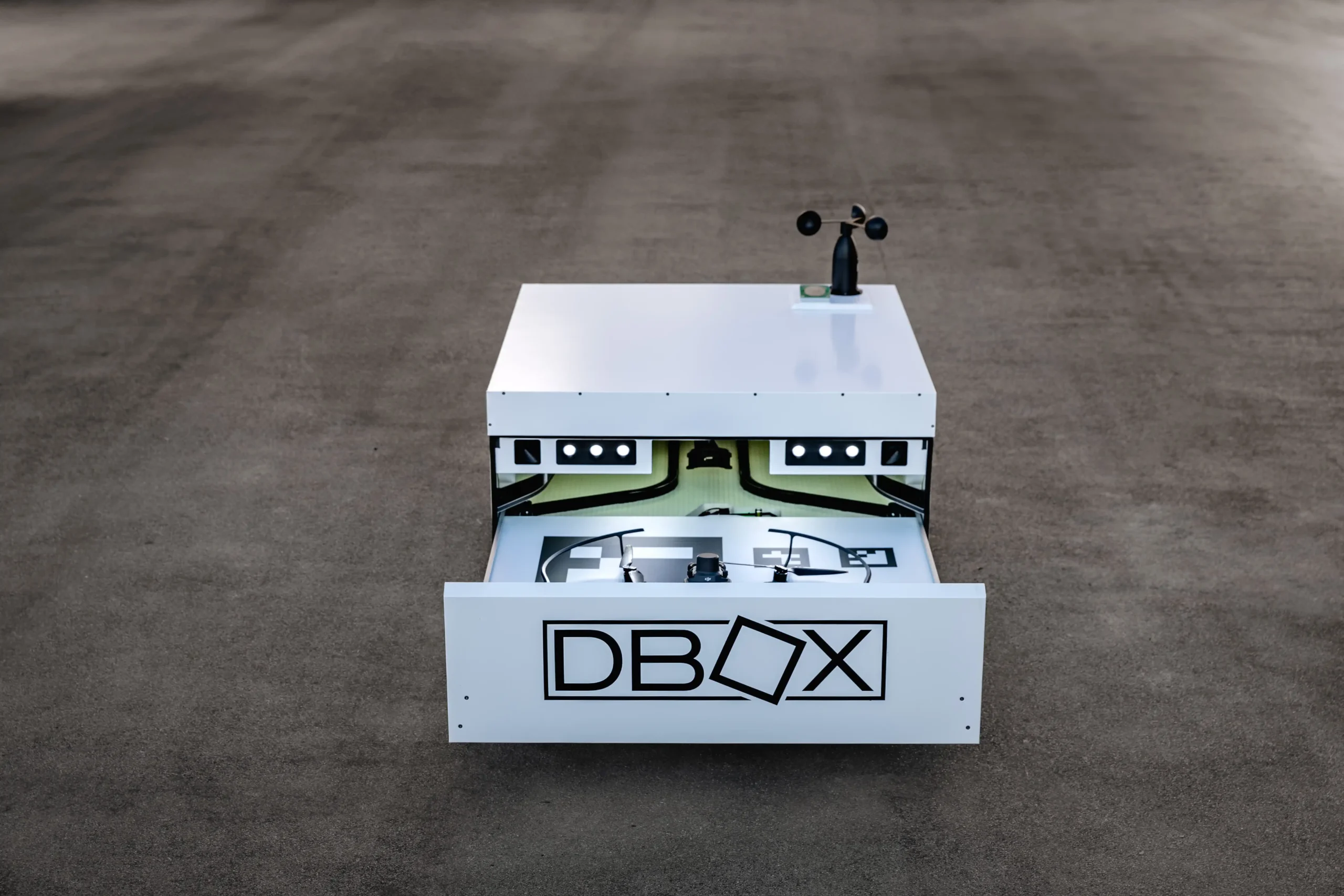
Originally published on the Lithuanian Innovation Agency webpage:
Lithuanian-built autonomous drone station allows control of drones from anywhere in the world. Drones are already improving the daily lives of Vilnius residents and are being used to develop modern security and defence solutions. Noticing that drones require a high level of human involvement, Lithuanian company IT Logika has developed an innovative autonomous station that allows drones to be prepared for flight more efficiently.
As the range of applications for drones expands, there is also a need for innovative solutions to control drones more efficiently and transmit data faster. The autonomous drone station DBOX, developed by UAB IT Logika, which benefited from the European Union funding "Inostartas" administered by the Innovation Agency, meets these needs.
According to the company's director, Dr. Linas Gelažansko, the automation of the drone's flight preparation process was inspired by... Boredom. "We have been running many automated missions. The pilot had to go to the location, launch the drone and just watch. It's a boring job, a person had to be in a specific place just to change the battery," he says.
From improving urban infrastructure to defence solutions
For several years now, drones have been improving the quality of life in the city by monitoring traffic volume, collecting parking statistics and tracking the condition of roofs, garbage bins and pavements.
Unmanned aerial vehicles also contribute to keeping the city clean. A team from the capital's municipal company, ID Vilnius, has trained an artificial intelligence to evaluate drone photos and identify problems - for example, to capture a car blocking the access to a dumpster or bulky waste left out of place.
"Information about abandoned rubbish is received before residents have time to complain, so the waste stops piling up - once the first piece of rubbish has been removed, the second piece of rubbish is usually gone. Last year, the amount of bulky waste collected doubled," says L. Gelažanskas.
The security sector is not the first year that UAVs have been used, but the adaptation of autonomous stations helps to further optimise processes. The DBOX drone station is built in facilities that require more than one employee - factories, construction sites, power plants, railway areas. As the drone can be operated remotely, the need for human resources and the costs for the company are reduced.
Now, the IT Logika team is working on a 5G drone that will be fully Lithuanian-made - from software to components. Such drones respond to the country's need and plans to strengthen border security. With drone stations every few kilometres, the situation at the border could already be monitored in real time and in a fully automated way.
With just a few component changes, improved communications and the adaptation of the drone to fly without GPS navigation, unmanned and autonomous stations could also be used on the war front in Ukraine. "The current trend is that the enemy is not targeting the drone, but the pilot who operates it. However, if soldiers were able to operate drones in a completely different location and the enemy hit the box itself, it would be a loss of a device, a piece of metal, not a human life, which is priceless," says Gelažanskas.
Dr. Sigutė Stankevičiūtė, Head of the Innovation Agency ManuFuture LAB and the NATO DIANA Tech to Market Expert Group, echoes the director of IT Logika, highlighting the great potential of connected solutions in the field of defence.
"In recent years, we have witnessed an extremely rapid growth in the variety of applications for drones. The whole world is investing in drone-related solutions, including innovators in Lithuania who are able to find innovative niches," she says.
The expert highlighted the developers of drones and drone-enabled solutions, including Vista Reader, which received support from the 2023 NATO DIANA programme, BROSWARM, the first place winner of the NATO Innovation Challenge, and Unmanned Dynamics, the second place winner. Many other companies are currently developing solutions for UAV applications, having benefited this year from the Innovation Agency's Defence Innovation Vouchers.
"These examples reflect only part of the focus on the development of unmanned aircraft technology in Lithuania alone. There are also NATO innovation support structures, numerous initiatives coming from individual member countries of the Alliance, whose market potential needs to be taken into account in the development of related technologies. All this allows us to expect further growth in demand for integrated drone systems, which we believe will include the solution developed by IT Logic", - says S. Stankevičiūtė.
Drone control from anywhere in the world
The need to reduce human involvement was highlighted during the COVID-19 pandemic, when IT Logic's drones flew over the city of Vilnius and recorded violations of quarantine rules. Although the flights were controlled remotely via a 4G network, service staff still had to spend time at the White Bridge (where the drones took off and landed) just to change the drone battery.
Now, drone operator time is saved by the autonomous drone station DBOX. Once the flight is complete, the drone returns to a box-like "garage" where a robotic arm inside replaces the dead battery in less than a minute. Once back in its garage, the drone is automatically cooled or heated as needed, depending on weather conditions, and protected from rain and snow. An on-board 4G or 5G router communicates with the drone operator's computer and allows you to control the drone from anywhere in the world. "For example, a person can sit quietly in the office and control a drone flying in another city or another country," says Gelažanskas.
DBOX is also the first to offer an innovative technological solution to the problem of data transfer times - a cased robotic arm connects a USB cable to the drone, which allows information to be downloaded faster than with a conventional Wi-Fi connection.
The company's innovations have already been recognised internationally, with the DBOX autonomous drone station having been presented at international conferences in many countries in Europe, as well as in Ukraine, Singapore and the USA.
